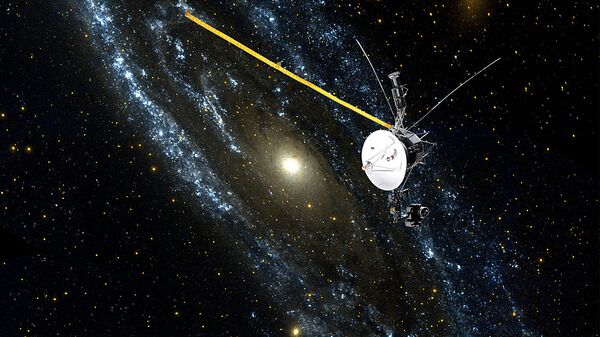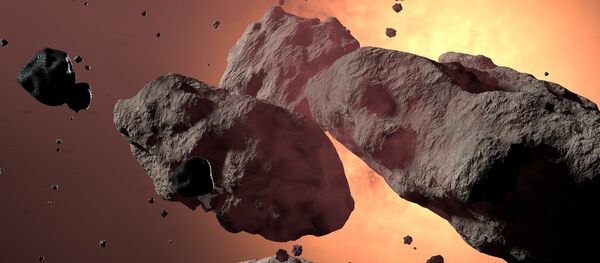The discovery is critically important as it makes it possible to begin an era of deep space manned missions, according to an article published in the latest issue of Oncotarget.
“During our work on this strategy we put together a team of leading scientists from Russia, NASA, the European Space Agency, the Canadian Radiation Center and more than 25 other research centers from around the world. The technology of radioresistance could be put to good use also on Earth, with healthy longevity as a side effect,” said Alexander Zhavoronkov, a professor at the Moscow Institute of Physics and Technology and the chief executive director of Insilico Medicine biological startup company.
Data obtained by the Radiation Assessment Detector (RAD) aboard the Mars Science Laboratory's Curiosity rover, indicate that during a flight to the Red Planet humans could be exposed to lethal doses of radiation.
Scientists at NASA, the Russian Academy of Sciences’ Institute of Medial and Biological Problems and other institutions worldwide are working to resolve this problem by studying the effects of radiation on the brain and other organs of animals and humans and developing means of protecting humans against radiation or at least minimizing its effects.
“The renaissance of cosmonautics could result in the first manned missions to Mars and deep space. However, to survive the deadly effects of space radiation people need to become more immune to outside factors. In our article we offer a method of increasing human resistance to radiation, stress and ageing,” Zhavoronkov said.
He added that all life forms on Earth are able to withstand the effects of radiation and repair DNA and other life-giving molecules affected by it.
“By stimulating this ability we could protect cosmonauts and astronauts from radiation. There are other, more radical means of protection, including a partial replacement of “light” atoms of hydrogen and carbon with heavier deuterium and carbon-13 to minimize the effect of radiation on human tissue. We could also find ways to send people to sleep and keep their bodies inside specially-designed radiation-proof chambers during missions to Mars,” Alexander Zhavoronkov concluded.
READ MORE: New Space Capsule to Undergo Radiation Resistance Test on ISS — NASA



